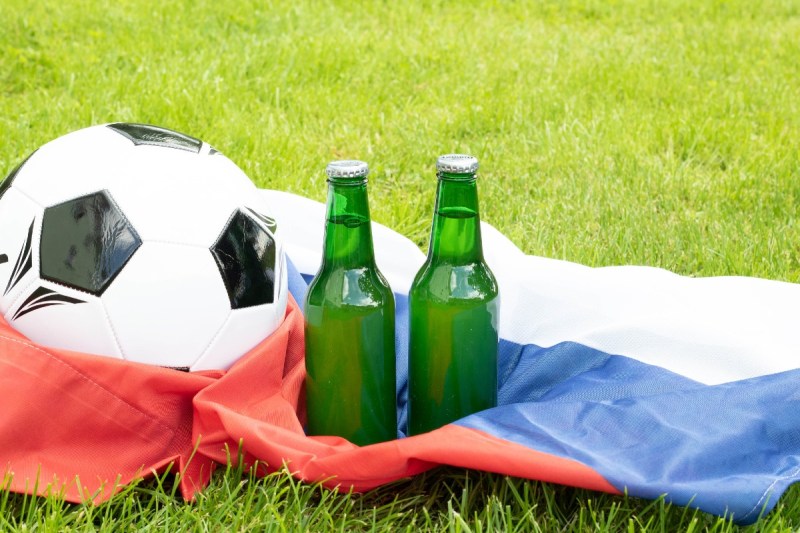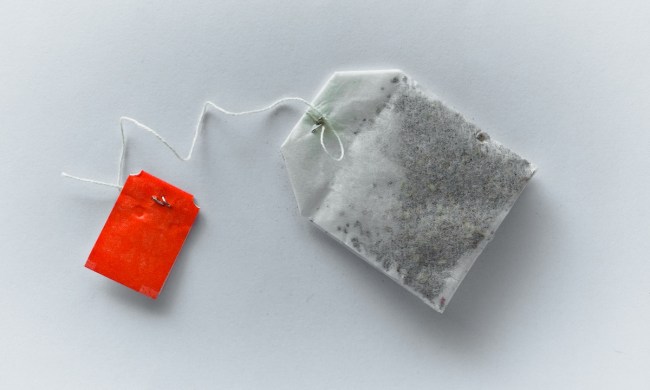Amidst the multitude of controversy, protests, and social issues that arise during an event like the 2022 World Cup, perhaps none is so universally applicable as Qatar’s decision to ban alcohol sales at match venues. On Friday, November 18, FIFA announced that it would respect the host country’s decision for Qatar 2022 in a short statement.
“Following discussions between host country authorities and FIFA, a decision has been made to focus the sale of alcoholic beverages on the FIFA Fan Festival, other fan destinations and licensed venues, removing sales points of beer from Qatar’s FIFA World Cup 2022 stadium perimeters,” the statement said.

While Bud Zero is still available inside Qatari stadiums, fans won’t be able to imbibe alcohol, which aligns with the Muslim code that helps to shape the Middle Eastern nation’s laws. This does not mean that there is no alcohol at the World Cup. Beer and liquor are available at select hotels, bars, and the official FIFA Fan Zone, per Al Jazeera.
The cases of Budweiser that were meant to be sold during the World Cup will be sent to the winning country, according to the company. (Anheuser-Busch InBev has had exclusive rights to sell beer at the World Cup since 1986. According to Yahoo Sports, this year’s deal was worth $112 million.)
New Day, New Tweet. Winning Country gets the Buds. Who will get them? pic.twitter.com/Vv2YFxIZa1
— Budweiser (@Budweiser) November 19, 2022
As the international tournament is now a week old, it’s time to take a look at how this is affecting fans, foreign and domestic.
According to Shaykh Muhammad Saalih al-Munajjid at Islam Question and Answer, alcohol is not allowed in the Islamic faith because of its intoxicating effects on the mind. The Quran, the Muslim holy book, labels substances that shroud the world from people’s minds “the work of Satan,” requiring that its adherents avoid these substances.
While this is a foreign concept to soccer fans from nations that typically celebrate with alcohol, Al Jazeera reports that its citizens appreciate the ban as it is representative of the Qatari culture and that they appreciate when travelers respect the laws and customs of the lands that they are visiting. After all, when people visit other nations, they are required to abide by the regulations of those lands.
World Cup pilgrims from other surrounding countries, most of which are Islamic as well, also appreciate that they will not have to deal with rowdy, drunken debauchery if they so choose, according to Al Jazeera. Parents can bring children to matches with peace of mind that they will likely avoid alcohol-fueled brawls like the violence that marred the Euro 2020 championship at England’s Wembley Stadium last year.
Still, paying fans from across the globe felt jilted by what amounted to a last-minute decision. CNN reported that just two months prior, Qatar released a statement that it would permit ticketed fans to purchase and consume alcoholic beer inside World Cup stadiums three hours before kickoff and for one hour after the final whistle, but not during matches. FIFA President Gianni Infantino showed no sympathy for fans who went in with this expectation, however, in the midst of an hour-long, rambling tirade.
“I think personally, if for three hours a day you cannot drink a beer, you will survive,” Galantino said the Saturday before the World Cup began. “There will be […] over 200 places where you can buy alcohol in Qatar and over 10 fan zones, where over 100,000 people can simultaneously drink alcohol.”
How are fans surviving without what some consider to be an integral aspect to participating in football fandom? Not so well, according to The Associated Press. The news wire described thousands of fans prohibited from the already at-capacity FIFA Fan Festival sites. There is apparently room for about 40,000 people there, just a minute slice of the 1.5 million people expected to visit the tiny nation for the World Cup, per Euro News.
One resourceful fan created the Qatar alcohol map, which shows every venue you can drink at in Qatar — but, not surprisingly, fans are finding that these bars, hotels, and other alcohol zones are overflowing with thirsty soccer nuts.
Other fans have solved the problem by staying in another country — the United Arab Emirates. While PBS reports that many chose hotel packages in Dubai because they were less expensive, others opted to stay in Dubai — with packages that included match-day flights — because of the far less restrictive rules about alcohol.
Attending a football match sober is anathema to many penitents of the beautiful sport. This is the reason that the AP notes the illegal ways that people are trying to sneak alcohol into Qatar and its stadiums — filling sanitizer bottles, hiding containers in clothing, using novelty binoculars, and other desperate measures. While this seems all in good fun, travelers to Qatar need to be aware that they could easily find themselves behind bars for not following the country’s strict taboo against booze.



